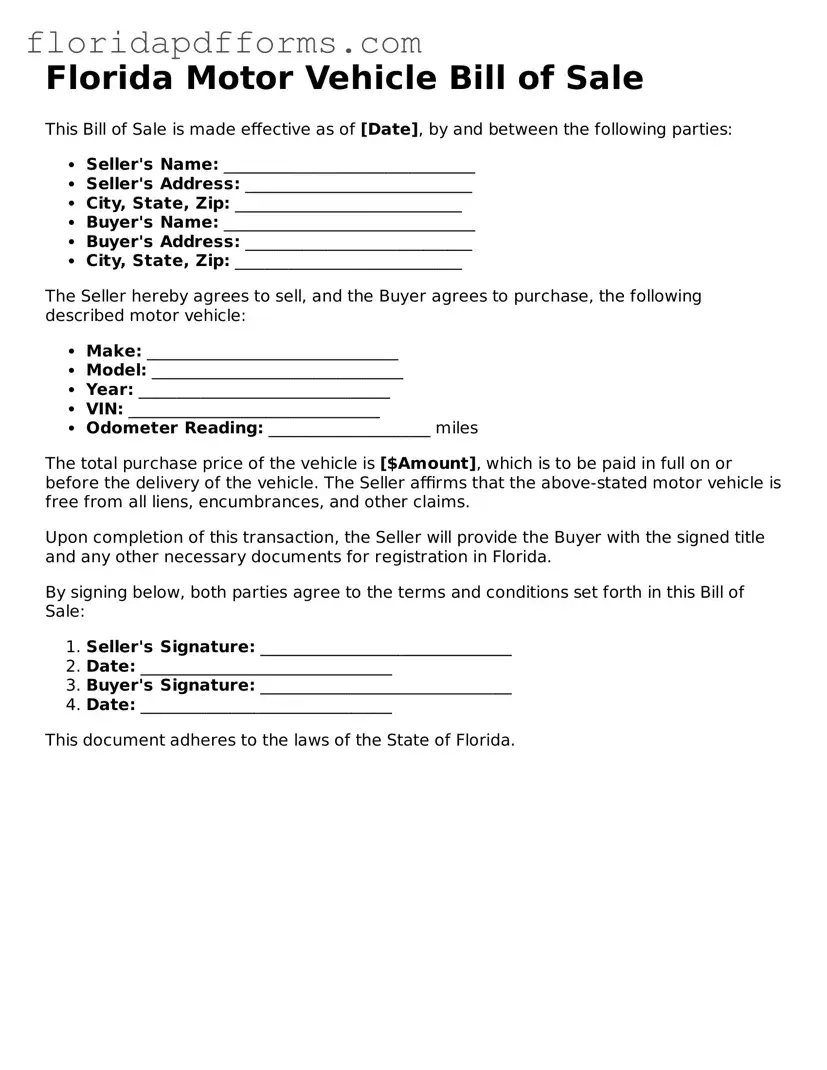Official Motor Vehicle Bill of Sale Template for Florida
The Florida Motor Vehicle Bill of Sale form serves as a legal document that records the sale of a vehicle between a buyer and a seller. This form includes essential details such as the vehicle's identification number, make, model, and the sale price, ensuring both parties have a clear understanding of the transaction. To facilitate a smooth transfer of ownership, it is important to fill out this form accurately.
Ready to complete your transaction? Click the button below to fill out the form.
Modify Motor Vehicle Bill of Sale Now

Official Motor Vehicle Bill of Sale Template for Florida
Modify Motor Vehicle Bill of Sale Now

Modify Motor Vehicle Bill of Sale Now
or
⇓ Motor Vehicle Bill of Sale File
Don’t stop halfway through your form
Finish your Motor Vehicle Bill of Sale online with quick edits and instant download.